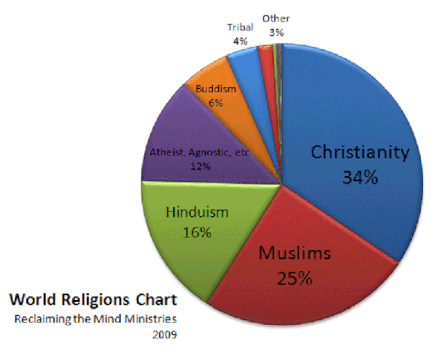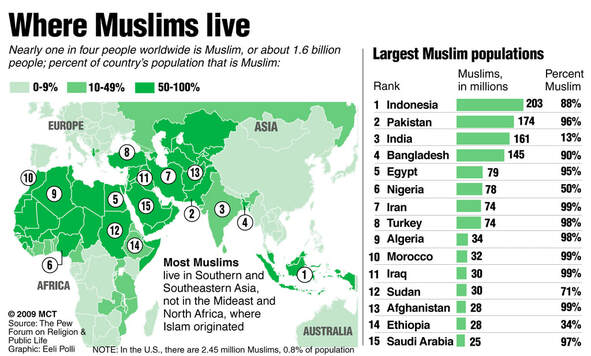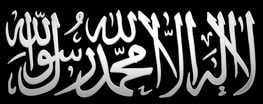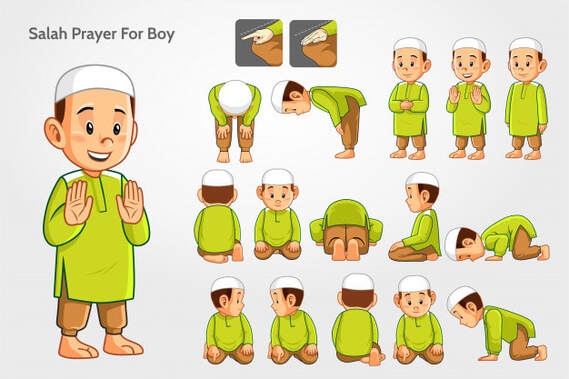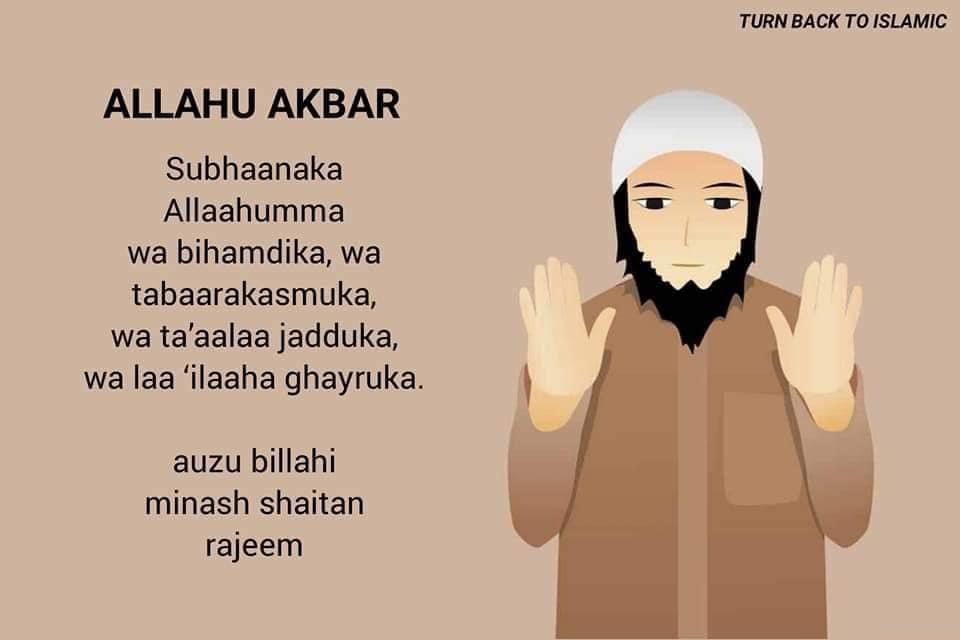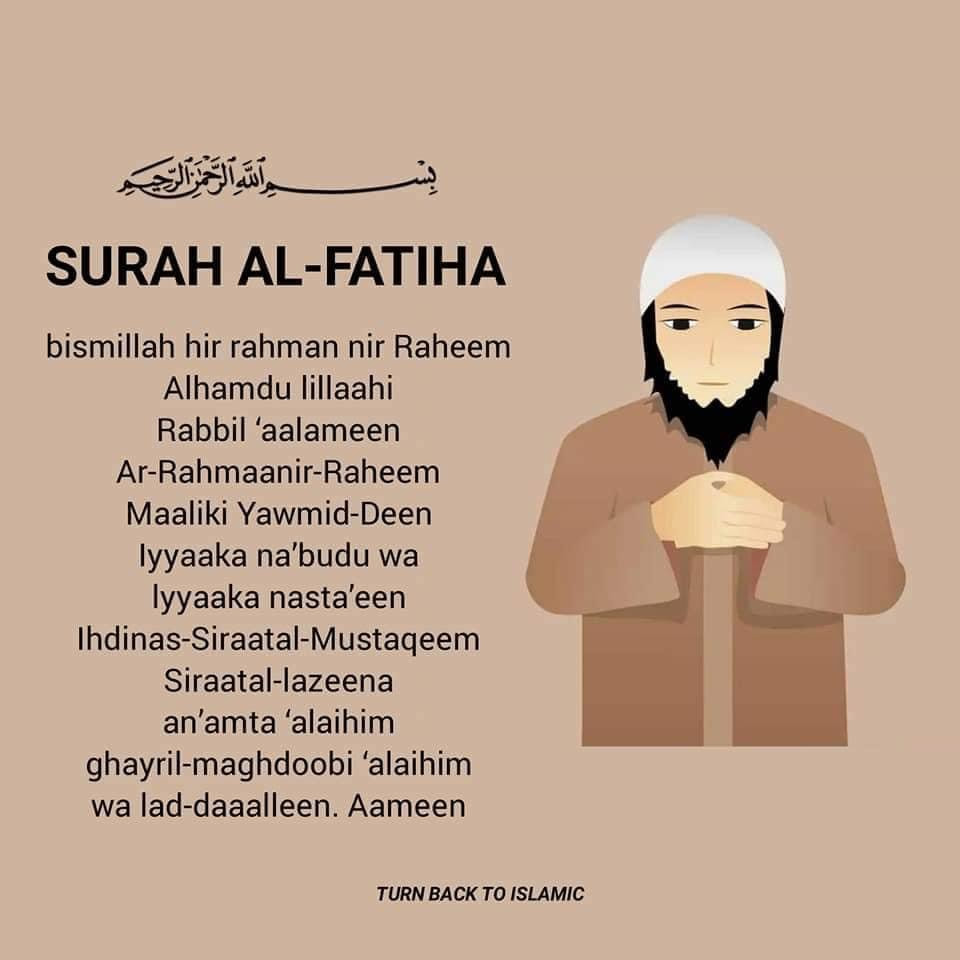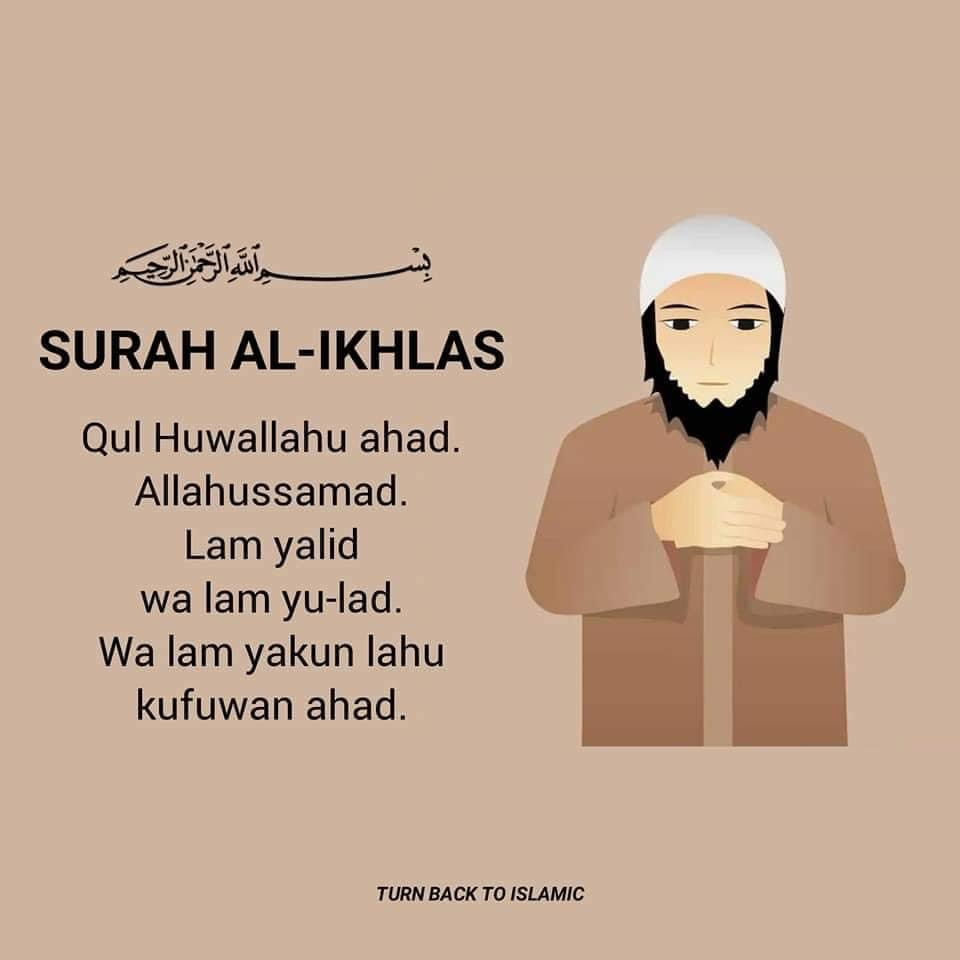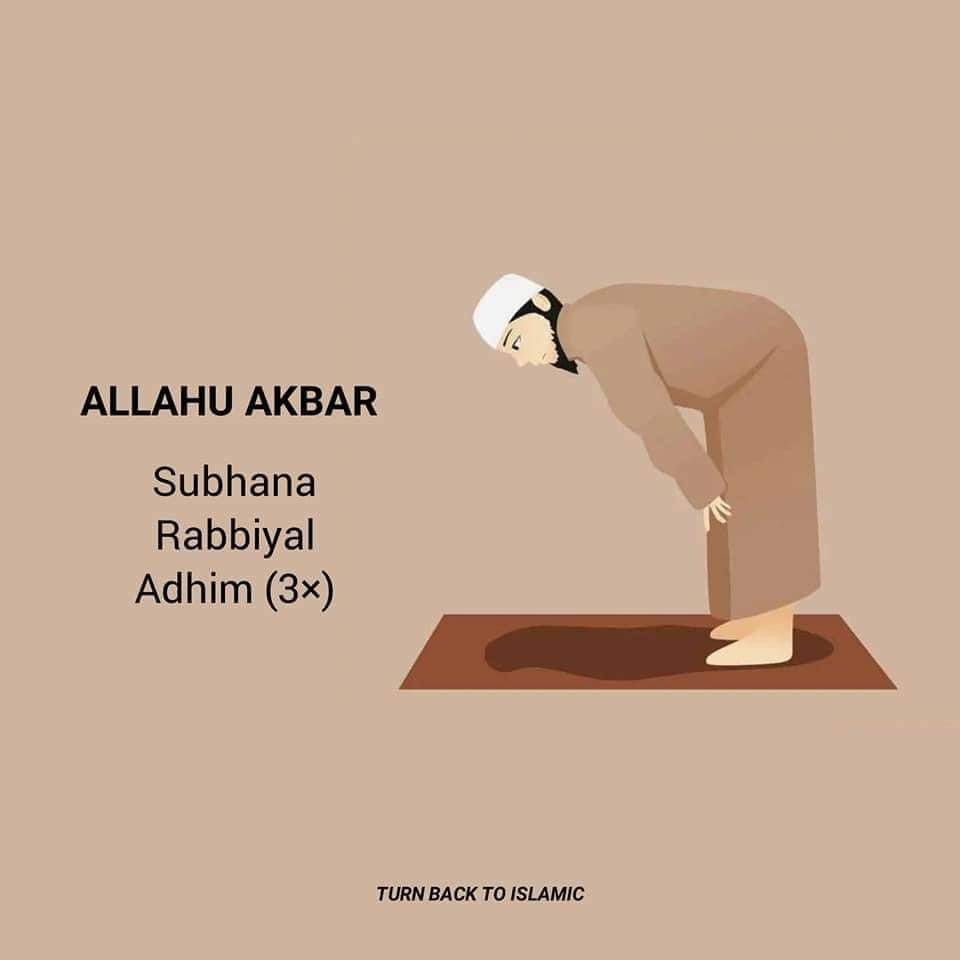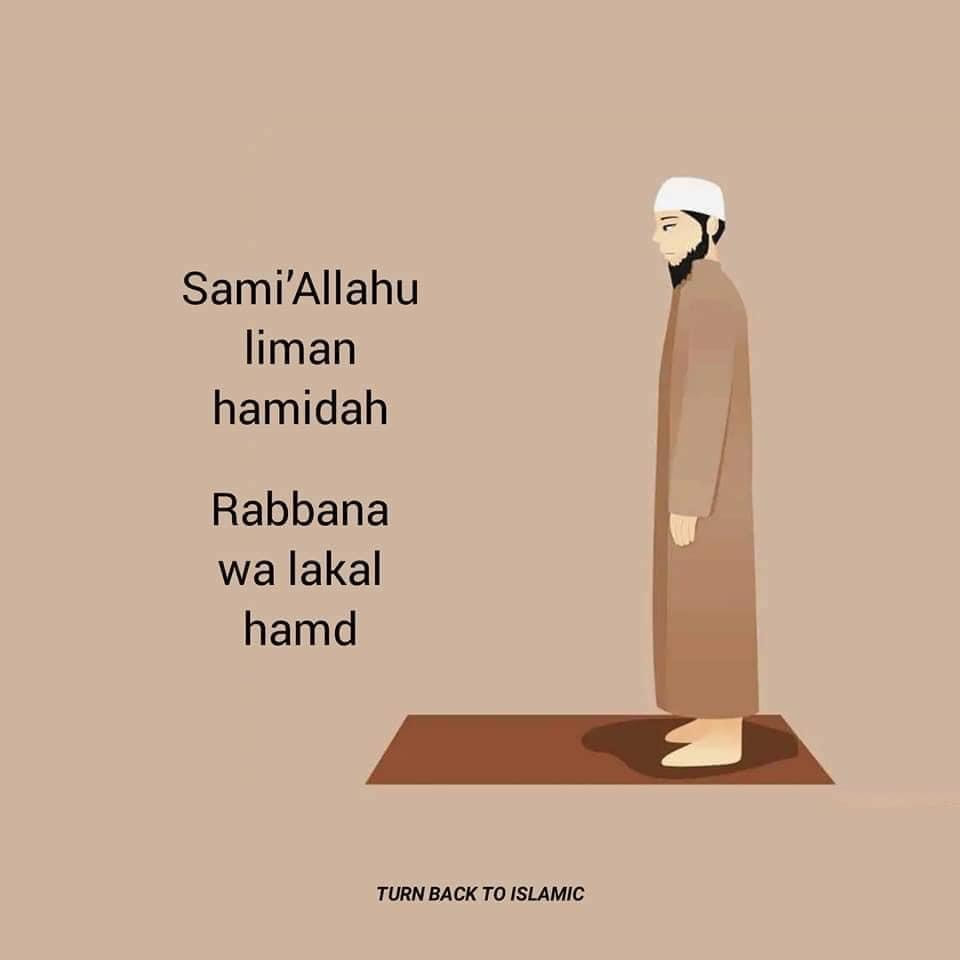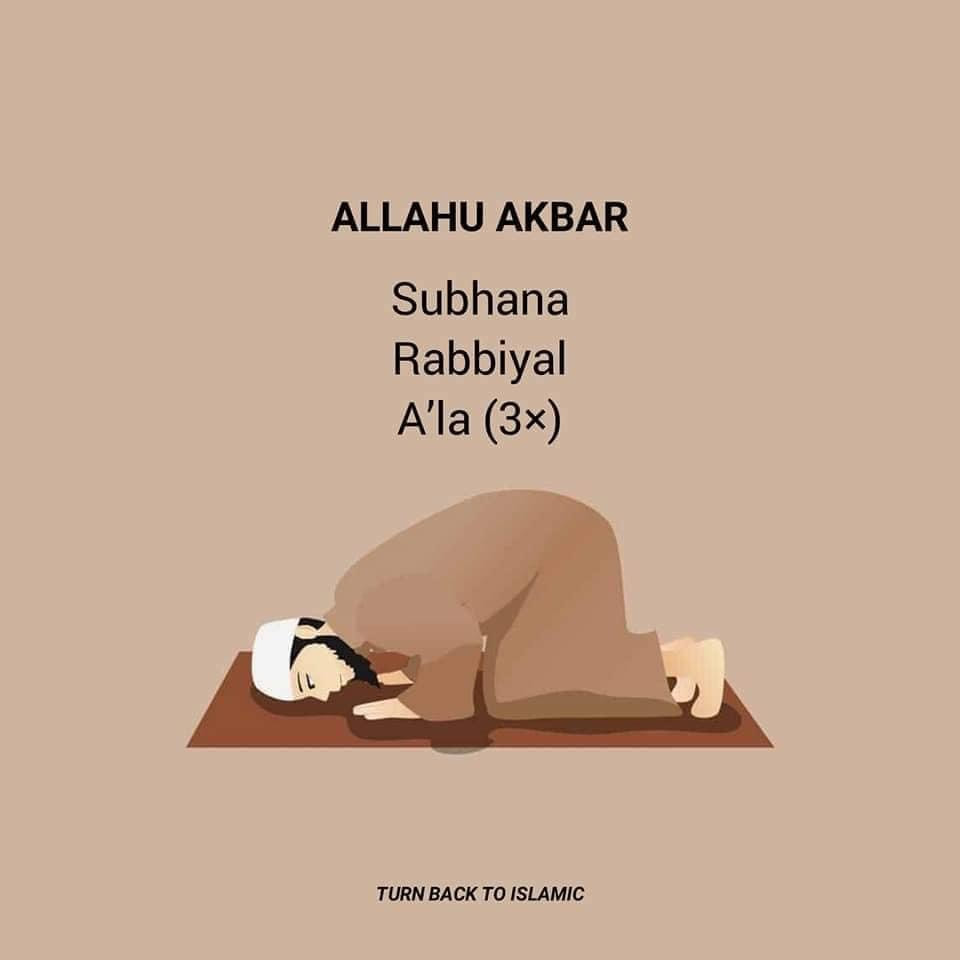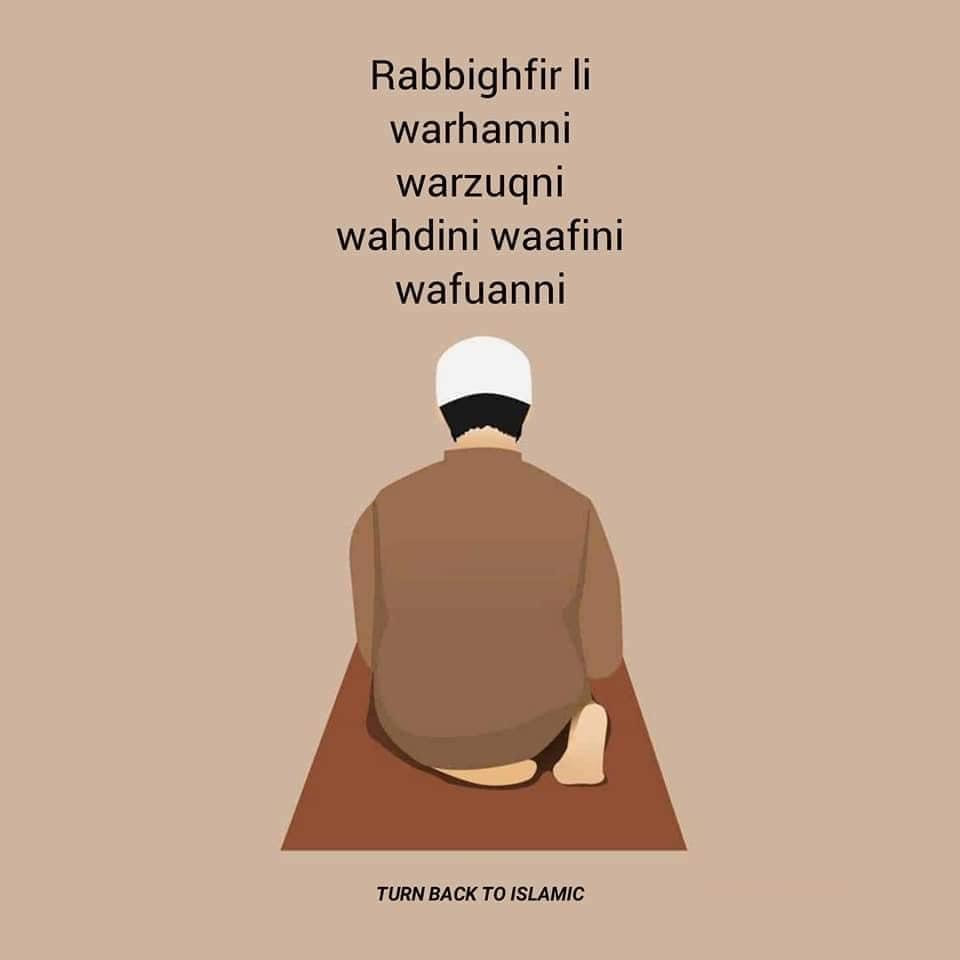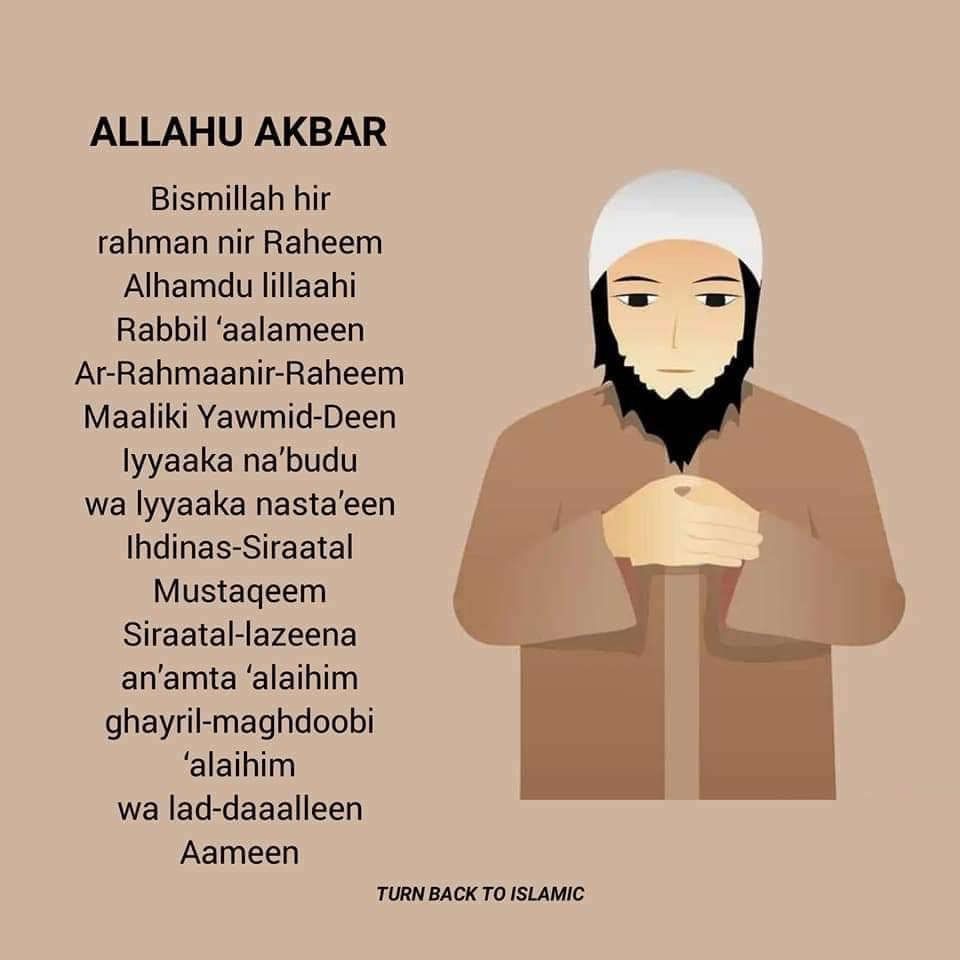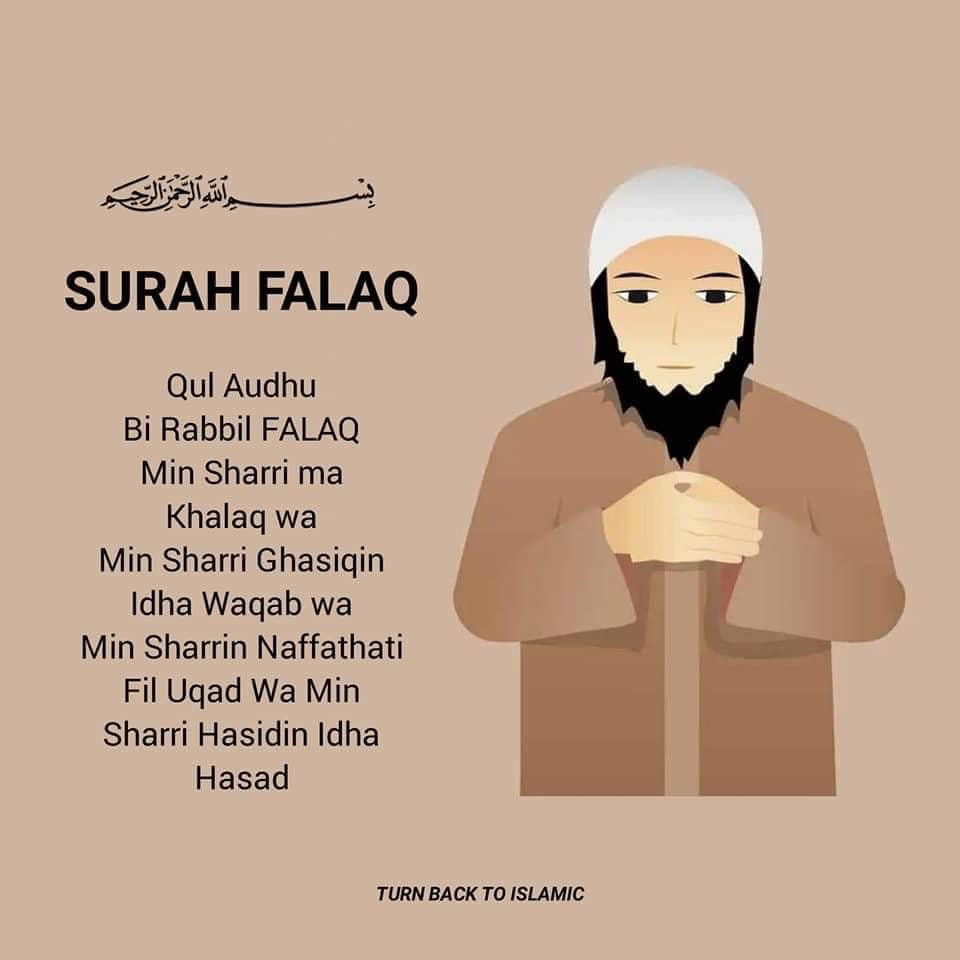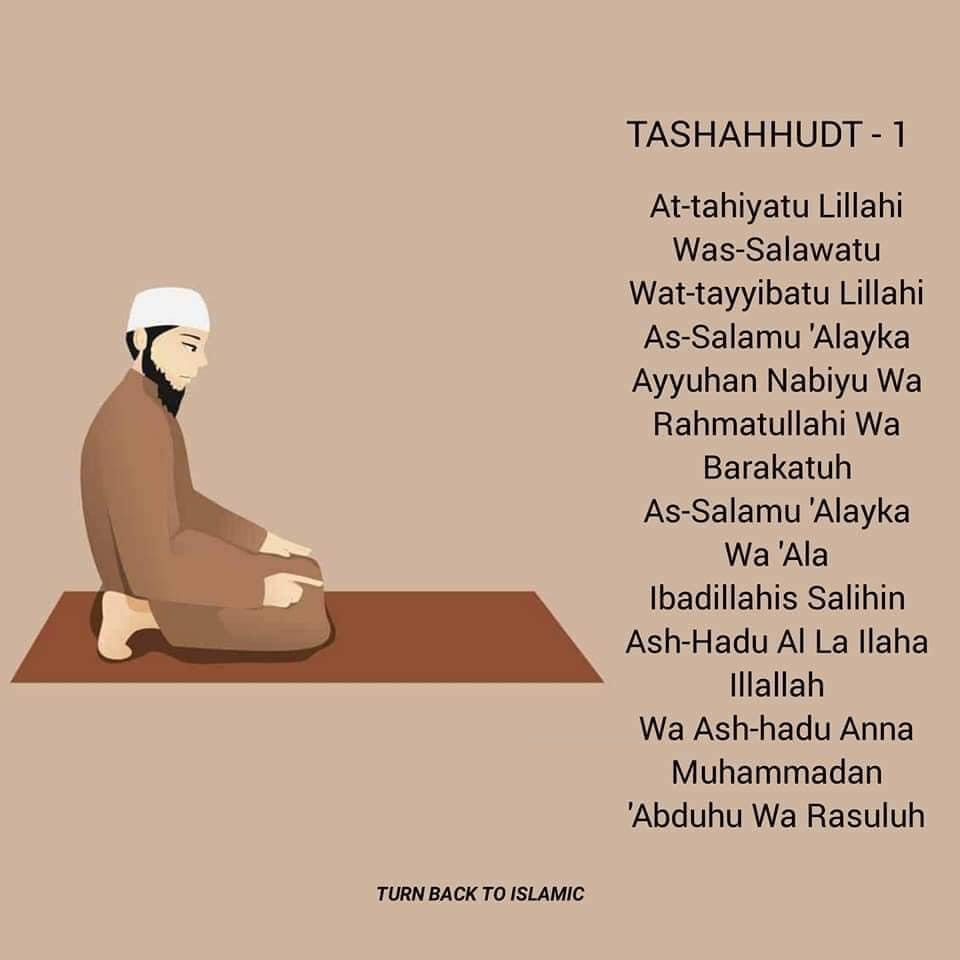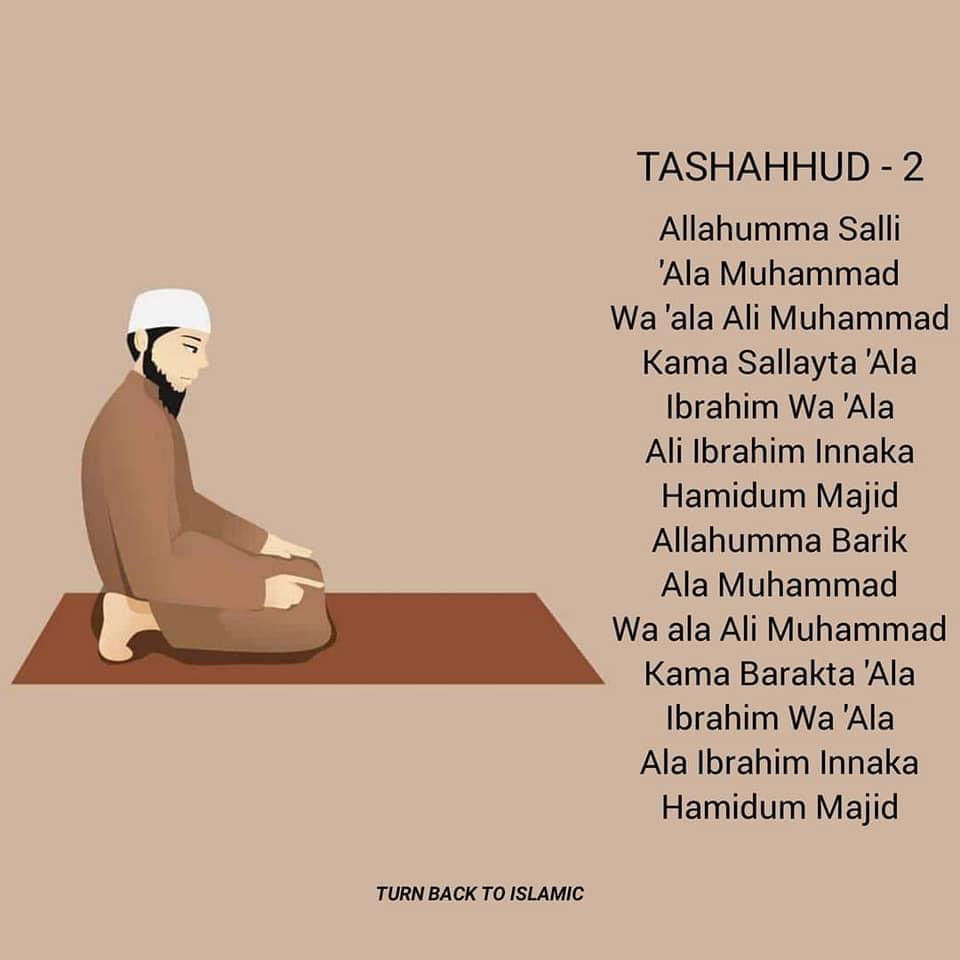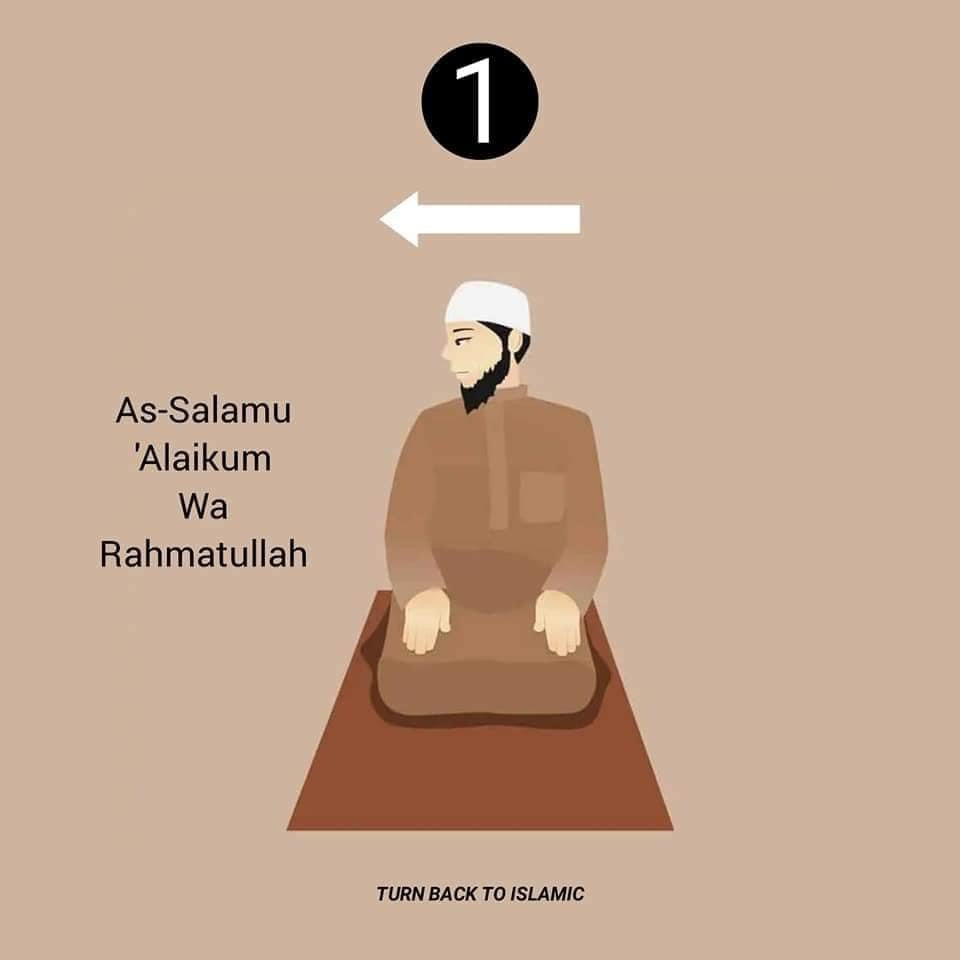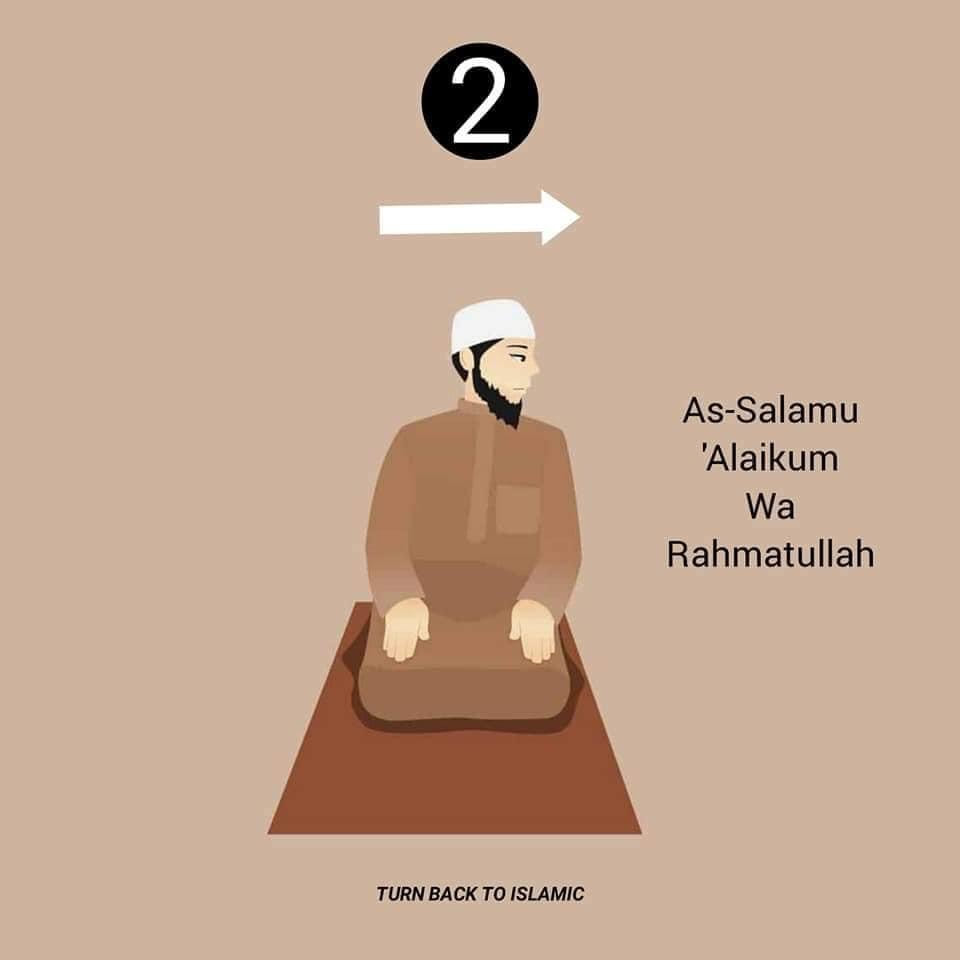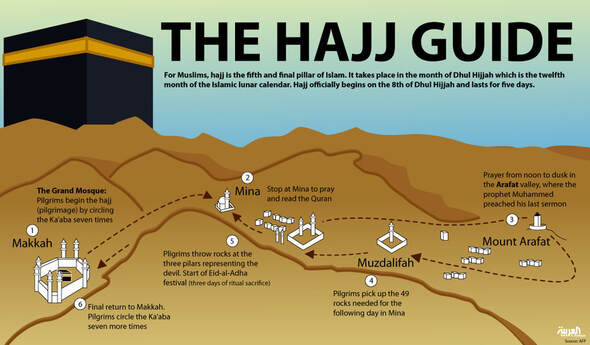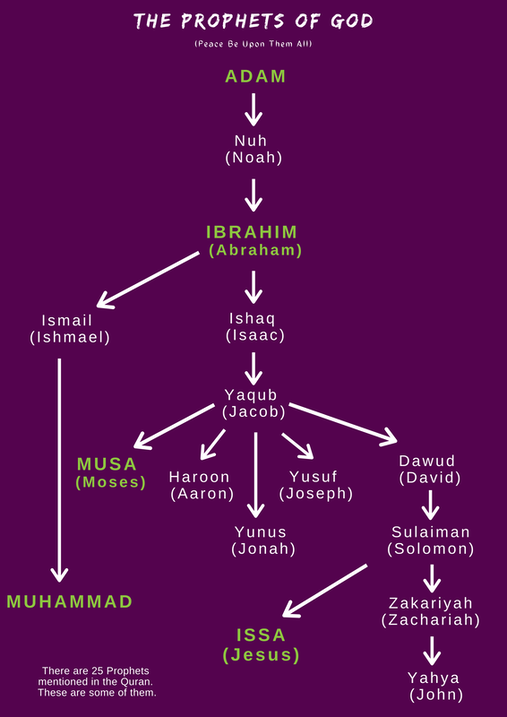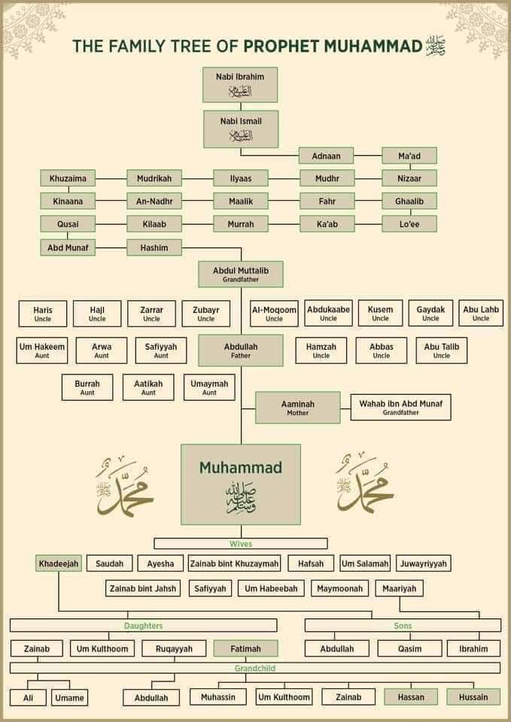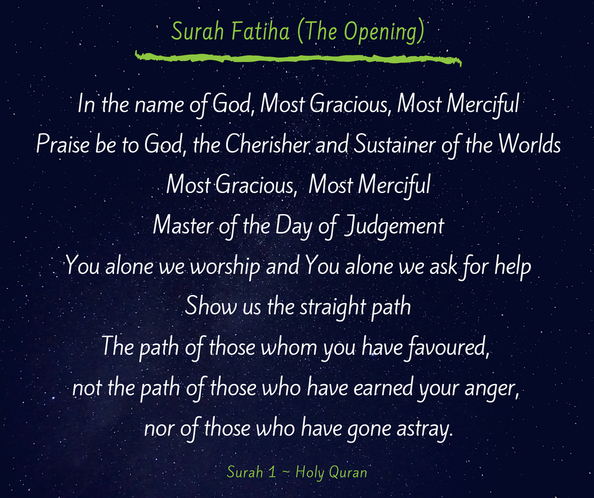{Please note that for those who are based in South Africa and have accessed this site via dawah.org.za you have been re-directed here}
Dawah is the Arabic word for "the act of inviting you to learn more about Muslims & Islam", and the term applies to both Muslims and Non-Muslims.
The information shared is applicable universally, irrespective of where in the world you live.
Dawah is the Arabic word for "the act of inviting you to learn more about Muslims & Islam", and the term applies to both Muslims and Non-Muslims.
The information shared is applicable universally, irrespective of where in the world you live.
On this page ?
|
|
|
- The information being shared will be updated regularly and so feel please free to visit again and share with your friends, Muslim or not.
- My intention is simple - share information and help improve your understanding of my faith, and God willing clear any misconceptions you may have ~ "from my heart to yours - just one heart at a time."
- The Arabic language of the Quran does not have always a simple English translation, and its recitation in itself has a special significance to Muslims. Wherever possible I have included the transliteration and its English translation to explain the text of the Quran and at the same time to remove any misconceptions and fears for Non-Muslims when hearing the recitations or some words uttered by Muslims.
- I am not an Imam or Islamic Scholar but just consider myself your average practicing Muslim. I do not represent any Mosque or Organisation.
- Please view all the pages sharing information on "Women in Islam", "Islam, Christianity and Judaism", the "Three Holy Sites", "The Quran", and on what "Halal" is.
My Islam:
- My Islam, is the Islam I practice as seen through my eyes, felt in my heart and by my understanding of its beliefs.
- Over many years I have worked with, and had under my employ many Non-Muslims, who are always interested to know more about my faith and beliefs.
- Some felt uncomfortable to ask at first, for fear of offending, whilst others held nothing back in the deep and delving questions, they presented.
- I have constantly reminded them that, there is never any risk of offending for me, every question is an opportunity to learn and share, and in that same spirit I trust that you will not be offended as well, and are comfortable in asking questions to your Muslim friends.
- All the information provided on this site has been personally chosen, and presented with the intention of sharing that which I have found extremely informative of my faith over the years.
- As with any faith, one tends to accept teachings as doctrine, without always questioning the reasoning behind one's beliefs and practice. Yet, as Muslims we know that Islam has good logic and reasoning behind its practices, if we make the effort to understand.
- Thankfully the questions which they asked of me, in their quest to understand Islam and Muslims, often challenged my own knowledge of Islam. I believe it strengthened my faith and improved my knowledge, not only of Islam, but also of the other faiths, and helped me become more open and confident of my Islam, to provide the information requested of me about Islam but also on occasion of their faith.
- After more questions during Ramadan 2020, I decided it's time to start this page, to share some information to my non-Muslin friends (and some Muslims), to help improve their understanding, and to keep updating the site with more resources along the way.
- Alhamdulillah under the guidance of Allah SWT, muslim.org.au has been established, for the benefit of all, be they of the Muslim faith, of other faiths or of none at all.
- People of every faith know that reading just the "text without context" of their scriptures can easily be misunderstood, especially without the necessary understanding and knowledge. So we always encouraged to seek clarity from those with years of knowledge, but importantly the wisdom they bring to the pulpit (Imam, Pastor or the Rabbi).
- Kindly note that site is intended to share a general overview of Muslims and Islam, in an easy to read and understand manner, especially for my non-Muslims friends, colleagues and acquaintances, but I have already been told by some Muslim friends that they have already learnt a thing or two. Trust me I am learning every day too, and that's what our life is all about.
- Every video and resource shared here is personally viewed, created and selected, to confidently share my faith with each of you, my brothers and sisters in humanity.
- It is not intended to be a source of detailed Theology or Islamic Fiqh on the Faith or any particular topic, as there are numerous other online resources with that depth of information available.
Islam 101:
- Islam means peace through submission to Allah (God).
- One who submits is called a Muslim.
- Muslims believe in one God referred to as Allah.
- Islam is one of the 3 Abrahamic faiths - Islam, Christianity and Judaism.
- Muslims believe God sent down various Prophets to people at different times in history to deliver His universal message.
- Muslims must believe in and accept all the Prophets sent to us by God, including among them Abraham, Moses, Jesus and Muhammad (Peace be upon them all).
- They believe the final Prophet sent to mankind was the Holy Prophet Muhammad (Peace be upon him).
- To some of these Prophets, God revealed a Book for the people of that time - including the Torah (Hebrew scripture to Moses PBUH), Zabur (David PBUH), Injeel (Jesus PBUH), and finally the Quran (Muhammad PBUH).
- Muslims also have to accept all the original scriptures sent through these Prophets as the word of God.
- Christians & Jews are referred to in the Quran as "people of the Book"
- Theologically there are many similarities between Judaism and Islam.
- The Quran is the book sent to Prophet Muhammad (PBUH) via Archangel Gabriel, as the last and final book to mankind.
- The Quran is in the Arabic script and its recitation is universal in every part of the world - in Arabic, so a Muslim in every part of the world recites the same Arabic Quran.
- Translations of the Quran into English and many other languages is available.
- The Quran is the only book which has never been altered since revelation over 1400 years ago.
- Muslims believe in the miraculous birth of Prophet Jesus (Issa) PBUH, to His mother Mary (Mariam).
- In Islam there is no compulsion of religion (Ch2:V256), but sharing the message of Islam is considered a responsibility of a Muslim.
Glossary of Terms:
As a Non-Muslim, you may hear many terms during your interaction with Muslims or via the media. The table below explains some of these, and I trust will demystify the terms or phrases used by Muslims.
Interestingly some of these terms in Arabic are not unique to Muslims, but are also used colloquially in the Middle East by Arabic speaking Christians as well.
Interestingly some of these terms in Arabic are not unique to Muslims, but are also used colloquially in the Middle East by Arabic speaking Christians as well.
Allah |
God |
Islam |
Submission to Allah. Root word "salam" means peace, submission, obedience and purity |
Muslim |
A follower of Islam. One who submits to the will of Allah. Population of 1.8 billion |
SWT |
SWT written after Allah, is the abbreviation for "Subhanahu wa Ta-ala", which means "Glory be to Him, Most High" |
Prophet Muhammad (PBUH) |
Last and final Prophet of Allah, to whom the Quran was revealed |
PBUH |
Peace be Upon Him (a suffix of reverence for all the Prophets of God) |
Adhan |
Call to prayer (salah). The Arabic word Adhan means "to listen" |
Wudhu |
Ablution (washing or cleansing) performed before every prayer |
Shahadah |
The declaration of faith in Islam, which includes declaring your belief in One God (Allah) and also that you believe that the Prophet Muhammad is the last and final messenger of Allah. Also you believe and accept all the Prophets and their books before Muhammad (PBUH) including Adam, Abraham, Moses and Jesus (PBUH). |
Salah |
Prayer - Muslims pray 5 times a day |
Saum |
The act of fasting. Muslims observe the fasting during the month of Ramadan, where we abstain from food & water from dawn to dusk, and increase their spiritual connection to Allah with increased prayer, charity and good deeds. |
Zakat or Zakah |
The compulsory "wealth tax" for Muslims to give out annually to the poor. This is based on your excess wealth, which you have had in your possession for more than a year, over and above your essential requirement (cash, gold, silver). Zakat is analogous to the Jewish Tzedakah. |
Hajj |
The pilgrimage to Mecca in Saudi Arabia which an adult Muslim who has the financial means and in is good health is expected to perform at lease once in their lifetime. A person who completes the Hajj is given the title of Hajji. Umrah - this is the "minor pilgrimage" to Mecca and which may be done at anytime, outside the days of the Hajj, and also does not include all of the rituals of the Hajj. |
Ramadan |
The month of fasting |
Halaal |
That which is permitted - includes meat from animals slaughtered according to Islamic tradition |
Haraam |
That which is forbidden eg. alcohol, pork, gambling, fornication, usury (interest) |
Musjid or Mosque |
The place of congregational prayer for Muslims, like a church or synagogue. But Muslims can literally pray anywhere. |
Imam |
Muslim theologian, learned person or scholar who leads his community in prayer and also provides spiritual guidance. |
Kaaba |
Is symbolic of Allah's house on earth and is the direction to which Muslims pray, but they don't pray to the Kaaba. First built by the Angels, then by Prophet Abraham (PBUH), and finally rebuilt by Prophet Muhammad (PBUH). Situated in the city of Mecca in Saudi Arabia. |
Qiblah |
The direction in which Muslims face during prayer, that is towards the Kaaba in Mecca, Saudi Arabia |
Quran |
The Quran is the divine Book of Muslims revealed to the Prophet Muhammad (PBUH) via Angel Gabriel in Arabic. It has never changed in over 1400 years and is considered to be the final Book of God. The Quran consists of 30 Juz (Sections), 114 Surahs (Chapters) and 6236 Aayats (Verses) |
Surah |
Refers to a Chapter in the Holy Quran, of which there are 114. |
Aayat |
Refers to a verse in the Holy Quran, of which there are 6236. |
The Sunnah |
The Sunnah is a collection of traditions, moral sayings and anecdotes (Hadiths) of the Prophet Muhammad (PBUH). It embodies all the elaborations of Quranic teaching. |
Shariah |
Shariah is the sacred law of Islam, based on the divine revelations contained in the Qur'an and Sunnah. It is a law by which Muslims live, eat, pray, do business, laws of marriage, divorce, inheritance etc. It is for Muslims only. Australia has the perfect example of the dual law being in existence in one country, which is the traditional Aboriginal Lore, for the Indigenous Australians. |
Sehri or Suhoor |
Suhoor is meal time at the beginning of the days fast before dawn |
Iftar |
Iftar is the breaking of the fast at sunset in Ramadan or any other time one fasts. |
Insha-Allah |
God willing |
Inna Lillahi wa Inna Ilaihi raji'oon |
"To God we belong and unto him we shall return" often heard recited by Muslims during any calamity or loss. |
Alhamdu-lillah |
The Arabic word which means "Praise be to God" or "Thank God" |
Raka'at |
A unit of prayer |
Juz |
Section of the Quran. There are 30 Juz in the Quran. |
Bismillahir Rahmanir Raheem |
In the name of Allah, the most Beneficent, the most Merciful |
Books of God |
Refers to all texts and Books of God including the Quran (revealed to Prophet Muhammad PBUH), the Torah (revealed to Prohet Moses PBUH), the Injeel (revealed to Prophet Jesus PBUH) and other scriptures revealed by the same God of Moses, Jesus, Muhammad (PBUH) |
People of the Book |
In the Quran, this phrase refers to people of the Jewish and Christian faiths |
Sadaqah |
Discretionary charity (as compared to Zakaat which is compulsory charity) given to the less fortunate and those in need anywhere, including neighbours at home or around the world |
Allahu Akbar |
God is Great. There is no other sinister meaning. Muslims use it all the time to acknowledge and re-enforce our belief. This is a often heard and portrayed in the media with a very negative connotation. |
Revert |
Muslims believe that we are all born Muslim, and the faith we take depends on the family we are born into. However if the persons accepts Islam at any stage in their lives, then they are referred to as reverts (reverting to Islam, verses converting to Islam). |
Alhamdulillah |
All praise be to Allah |
SubhanAllah |
Glory be to Allah |
Adhan (Azaan) |
Call to Prayer, called out at each Prayer 5 times a day to inform that it is the time for Prayer. The meaning of the Arabic word is "to listen, to hear, to be informed of" |
Iqamah |
This is the second call to prayer, summoning to Muslims to line up for the start of the prayer. |
Muezzin |
The Muezzin is the person given the task of calling the Adhan. |
MashaAllah |
Allah SWT (God) has willed |
Da'wah |
The act of inviting you to Islam |
Five pillars of Islam:
Muslims have five fundamental pillars in Islam, which form the foundation of their faith.
The Shahada |
The Declaration of Faith for every Muslim. "I bear witness that there is no god, but Allah (God); I bear witness that Muhammad is the prophet of God." By reciting and believing in this declaration, one enters the Islamic faith and accepts Islam as their way of life. (see image below) |
Salaah |
Muslims are required to pray five times a day at designated times, washing themselves before prayer and facing in the direction of Mecca while praying |
Zakaat |
Compulsory Charity. Muslims are required to give away 2.5% (percent) in value of their excess wealth once a year to those less fortunate |
Saum |
Fasting. Muslims fast for one lunar month each year, called Ramadan. During this time, Muslims reflect on their behaviour and use the month to spiritually uplift themselves. |
The Hajj |
The Pilgrimage. If it is financially possible, Muslims are required to travel to Mecca to perform the Hajj at least once in their lifetime |
The six articles of belief of Muslims:
Muslims believe in One God, in His Book the Holy Quran, in the Angels, His Prophets, in the Day of Judgement, and finally that whatever happens is the will of God.
Allah |
The belief that there is only one God, called Allah |
Quran |
Muhammad (PBUH) received the Qur'an via Angel Gabriel, as a copy of the eternal Qur'an which is inscribed in heaven by Allah SWT. |
Angels |
God created heavenly beings called Angels to serve God and they are opposed by evil spirits (Jinn). |
The Prophets |
God sent His prophets to us on earth at their appointed times, and the Prophet Muhammad was the last and greatest messenger of God. Muslims also believe in all the Prophets before Muhammad (PBUH), including Abraham, Ismael, Isaac, Moses and Jesus (Peace be upon them all). They believe Jesus (PBUH) to be one of the Prophets of God rather than the son of God, and believe in his return to earth. |
Day of Judgement |
There will be a final day of the world called the Day of Judgement. Good and evil will be weighed in the balance. The wicked will be punished and the just will enjoy eternal life in Paradise. |
Will of God |
Everything in the universe has a predetermined course. Nothing happens without the will or knowledge of God. |
Key occasions for Muslims:
Key Occasions |
|
Ramadan |
Ramadan is the 9th month of the Islamic calendar. Also celebrates the gift of the Qur'an being revealed during Ramadan. During the month of Ramadan, Muslims must fast between sunrise and sunset, increase their prayer, charity and good deeds. |
Eid ul Fitr |
The festival commemorating and celebrating the end of Ramadan. Its a joyous occasion celebrated with family and friends, Muslim greet each other by saying Eid Mubarak. |
Dhul Hijja |
The month of pilgrimage during which all Muslims perform the Hajj, at least once in their lifetime, they should try to make the pilgrimage to Mecca. |
Eid ul Adha |
The Festival of Sacrifice which occurs 70 days after Eid-ul-Fitr. It is celebrated at the end of the Hajj and commemorates Abraham's willingness to sacrifice his son Ishmael for God. Every family who can afford it must slaughter an animal and distribute the meat among relatives, neighbours and the poor. |
Muharram |
The month in which the Islamic New Year begins on the day Muhammad left Mecca to travel to Medina |
Rabbi ul Awwal |
Observes the birth of the prophet, believed to be on the 12th of this month. |
Miraj un Nabi |
Commemorates the prophet's night journey, from Mecca to Musjid-al-Aqsa in Jerusalem and then on to the 7 heavens for his meeting with God. It was on this night in which God gifted the 5 daily prayers to Muslims. |
Lailatul Qadr |
The night or power and decree, which is believed to be in one on the odd nights of the last 10 nights in Ramadan. The benefit of prayer during this night is equivalent to that of praying for more than a 1000 months (>83 years). |
The Shahadah:
- This is the Arabic inscription for the Shahadah, the "declaration of faith" for every Muslim.
- The Shahada - La ilaha il lallah Muhammadur Rasoolullah - There is no god, but Allah; Muhammad (PBUH) is the prophet of God
- The Oneness of God for every Muslim is non-negotiable.
- When any Non-Muslim person accepts Islam and declares their faith by taking the Shahada, at any stage of their life, then irrespective of their previous beliefs and sins, Allah SWT promises that ALL the previous sins and transgressions of the reverted Muslim is forgiven by God.
- This image below does not belong to any group or organisation (as is portrayed in the media), but is the image of the Shahada. Even though this can be written and inscribed in any other colour or calligraphy I have specifically chosen this image, so there is no confusion about what this image means.
Salaah (The Prayer):
- Muslim pray 5 times a day.
- The prayers are conducted with a ritual and as shown to Muslims by the Prophet Muhammad (PBUH).
- Each prayer has has units of prayer known as rakaats or raka'ats, and each of these has a set of actions from a standing upright position all the way to full prostration and submission to Allah.
- Prior to each prayer the call to prayer of Adhan is given. In many countries this will be heard out of the Mosques at the designated times of the prayer.
- On the following page of this website are the videos of 3 beautiful renditions of the Adhan, with the English translation and transliteration.
- The prayer can take place anywhere individually or in congregation, and usually prayed on a clean carpet surface or prayer mat.
- When praying in congregation, the prayer is led by an Imam, and the congregants stand shoulder to shoulder in rows behind the Imam and follow his actions and recitation on cue.
- The prayer times vary based on the sunrise and sunset times. A full list per city and country can be found at https://www.islamicfinder.org/
- Before Muslims pray they perform the ablution (washing and cleansing) known as wudhu.
Fajr |
The pre-dawn prayer, before sunrise |
Zohr |
Midday prayer (just after sun is at its peak) |
Asr |
Mid afternoon prayer |
Maghrib |
Just after sunset Prayer |
Esha |
Evening Prayer |
Jumah |
The Friday midday prayer, known as the Jumah salah, replaces the Zohr prayer on a Friday and is compulsory to be performed in congregation for males. |
Taraweeh |
During the month of Ramadan, there is an additional prayer after the evening prayer known as Taraweeh and has 20 raka'ats, Usually prayed in congregation where possible. |
Salaatul Eid |
On the days of Eid-ul-Fitr and Eid-ul-Adha, there is an extra prayer consisting of 2 Raka'ats. This is also prayed in congregation and takes place after sunrise on these 2 days. |
|
This is a great illustration of how to perform your 2 rakaat (unit) Salaah or Prayer and what should be recited in each of the steps (All 15 steps make up the 2 rakaat)
You will notice that positions 2 to 7 are repeated in each unit of prayer, before the Tashahhud is recited. If you have to perform a 4 Rakaat Salaah, then there are a few minor adjustments. After Position 14a, you will stand up in Qiyaam again and perform position 2a and finish all the way to 15b - but exclude steps 2b and 8b (which means omit Surah Ikhlas and Surah Falaq). This will complete a 4 rakaat prayer. |
|
This is a very simple animated STEP-BY-STEP prayer guide to demonstrate how Muslims pray. This video is for two Rakaat (unit) prayer
|
The Mosque:
In Islam, a mosque plays a central and multifaceted role in the lives of Muslims. Here are some key aspects of the role of a mosque in Islam:
- Place of Worship (Salah): The primary function of a mosque is to serve as a place of worship for Muslims. Muslims gather at the mosque to perform their daily prayers (Salah) and participate in congregational prayers on Fridays, known as Jumu'ah.
- Community Center: Mosques serve as community centers where Muslims come together for various religious, social, and educational activities. These include religious classes, lectures, study groups, and community events. The mosque fosters a sense of unity and belonging among the Muslim community.
- Education and Learning: Many mosques have educational programs to teach Islamic principles, values, and the Quran. They often host classes for children and adults, covering topics such as Islamic studies, Arabic language, and the teachings of Prophet Muhammad.
- Social Welfare: Mosques often engage in social welfare activities, such as providing support to the less fortunate, organizing charity events, and offering assistance to those in need. This reflects the Islamic principle of charity (zakat) and community support.
- Cultural Hub: Mosques can serve as cultural hubs, preserving and promoting Islamic culture and heritage. They may host cultural events, art exhibitions, and other activities that celebrate the rich diversity within the Muslim community.
- Leadership and Guidance: Imams, who are religious leaders, play a crucial role in mosques. They lead prayers, deliver sermons, and provide spiritual guidance to the community. The mosque is a place where Muslims seek religious advice and counseling.
- Jumu'ah (Friday) Prayers: The Friday congregational prayer, known as Jumu'ah, is a special gathering at the mosque. It includes a sermon (khutbah) delivered by the imam, and Muslims come together to pray and listen to the sermon. Jumu'ah is considered a key communal and spiritual event in Islam.
- Unity and Brotherhood: The mosque serves as a symbol of unity and brotherhood among Muslims. Regardless of ethnic, cultural, or social differences, Muslims come together in the mosque to pray, fostering a sense of equality and unity.
- Spiritual Reflection and Meditation: The mosque provides a quiet and sacred space for individual spiritual reflection and meditation. Muslims often visit the mosque outside of prayer times to seek a connection with Allah and engage in personal worship.
The Adhan - the Muslim call to Prayer:
The Adhan is the call to Prayer before the 5 daily Prayers. The Adhan is usually called or heard from the minaret of the mosque in many (even non-Muslim) countries around the world. But can be called anywhere prayers are held, whether at a gathering or even at home if the Prayer is performed in congregation.
These are beautiful recitations of the Adhan with the English subtitles.
These are beautiful recitations of the Adhan with the English subtitles.
|
A call to Prayer (Adhan) at a Church in the USA
|
Call to Prayer (Adhan) by Hassen Rasool at the Royal Albert Hall in the United Kingdom
|
Call to prayer (Adhan) for the Fajr prayer, which includes the verse which says indeed "Prayer is better than sleep"
|
Translation of the Adhan:
Allahu Akbar (recited 4 times) |
God is Great! |
Ashhadu an la ilaha illa Allah (recited 2 times) |
I bear witness that there is no god except Allah. |
Ashadu anna Muhammadan Rasool Allah (recited 2 times) |
.I bear witness that Muhammad is the messenger of God |
Hayya 'alas-Salah (recited 2 times) |
Hurry to the prayer. |
Hayya 'alal-Falah (recited 2 times) |
Hurry to salvation |
Allahu Akbar (recited 2 times) |
God is Great! |
La ilaha illa Allah (recited 2 times) |
There is no god except the One God. |
For the pre-dawn (Fajr) prayer, the following phrase is inserted prior to the final repetition of Allahu Akbar |
|
As-salatu Khayrun Minan-nawm (recited 2 times) |
Prayer is better than sleep |
Ablution (Washing & Cleansing before Prayer):
- Make intention (niyyah) to perform ablution for prayer.
- Say, “Bismillah” (In the name of Allah).
- Wash both hands up to the wrist three times and make sure that water has reached between fingers.
- Take a handful of water; rinse your mouth three times and spit it out every time.
- Cleanse the nostrils by inserting water into your nostrils and cleanse out, three times.
- Wash your face from one ear to the other, and from the forehead to the chin, three times.
- Wash both your arms up to and including the elbows, starting with the right and then the left, three times each side.
- Wipe over head with your wet palms from the top of the forehead to the back of the head and the nape of the neck.
- Wash inside of your ears with your index fingers and then behind the ears at the same time using the thumbs on each side.
- Finally, wash both feet to and including the ankles starting from the right, making sure that water has reached between the toes by using you fingers, and all other parts of the feet.
|
The Wudhu is the ablution (washing and cleansing) performed before every prayer. This practical demonstration of the ritual of cleansing has spiritual purification with each action performed
|
Zakaat (Charity):
- Zakaat is a compulsory 'wealth tax', analogous to the Jewish Tzedakah
- Muslims who have money or possessions (gold, silver) of value in excess of their basic needs have to pay Zakaat each year
- Calculate the value of the excess in accordance with shariah guidelines and the set aside 2.5% of this value
- Distribute to the less fortunate, including orphans and the destitute in their community and around world.
- This charitable duty is expedited and increased in Ramadan because it is believed the reward for all good deeds are multiplied many fold, at God's discretion, during Ramadan
|
Right now, the world's biggest donation is taking place - half a trillion dollars are being donated because of Zakaat
|
Ramadan (the month of fasting):
- Muslims fast during the month of Ramadan. This is the ninth month of the Islamic calender.
- The fast starts daily before dawn and finishes at sunset.
- During this period they cannot eat or drink anything.
- People who are unwell or travelling may defer the fast.
- Ramadan is an extremely significant period for Muslims around the world and is a very spiritually uplifting period and they tend to increase their good deeds and charitable acts.
- Ramadan is also the month in which the Quran was revealed to the Prophet Muhammad (PBUH)
The Haj (The Pilgrimage):
- The Haj takes place annually during the 12th month of the Islamic calender over a period of 5 days. Probably easier to understand the rituals if you watch the videos of the page with the Holy sites.
- Muslims who are financially able, must perform the Haj at least once in their lifetime
- The Haj is a pilgrimage to Mecca in Saudi Arabia, where between 2-3 million congregate to perform this act
- Many of the rituals observed at this time are symbolic of and include the acts of Prophet Abraham (PBUH), culminating in the the willingness of Abraham (PBUH) to sacrifice his son Ishamel based on a vision of this command coming from God
- The well of Zam Zam in Saudi Arabia is also there since the time of Prophet Abraham - this is the well and the narrative is that God instructed Prophet Abrahan to leave his wife Hagar with their son Ishmael in the desert. Hagar accepted this as the will of God, and in the desert heat was running between two mountains called Safa and Marwa (both of which still form part of the Mosque in Mecca), which baby Ishmael was crying and hitting his heels on the barren ground. After a while from the spot, where his heels hit , comes out water.
- The well of Zam Zam is still running till this day and billions of litres of water is consumed and transported to the rest of Saudi Arabia and the world.
- The Haj spiritual experience can never be described adequately, by anyone. The personal experience of the person performing the Haj (hajji), both physically, emotionally and spiritually is just indescribable.
- Umrah - this is the "minor pilgrimage" to Mecca and which may be done at anytime, outside the days of the Hajj, and also does not include all of the rituals of the Hajj.
The Holy Quran:
- The Quran is the divine Book of Muslims.
- Revealed to the Prophet Muhammad (PBUH) via Angel Gabriel in Arabic.
- It has never changed in over 1400 years and is considered to be the final Book of God.
- The Quran consists of 30 Juz (Sections), 114 Surahs (Chapters) and 6236 Aayats (Verses).
- Revealed over a period of 23 years.
- It is believed to be a copy of the original inscription from heaven.
- There are some verses or chapters of the Quran which for different reasons hold more significance to Muslims and you may hear of them more often, and I have shared some of their recitations on the YouTube page.
The Holy Prophet Muhammad (PBUH):
- The Prophet Muhammad (PBUH) is the last and final Messenger of God sent down to mankind.
- Islam was revealed to the Prophet Muhammad (PBUH) who lived from 570 CE to 632 CE and was born in Mecca in modern-day Saudi Arabia.
- Muhammad was called to prophethood when God dictated the Quran to him through the archangel Gabriel.
- He was given Prophethood at the age of 40, with the revelation of the first verse of the Quran via Archangel Gabriel, whilst in meditation in the cave of Hira
- Although he gained a small following in his tribe, Muhammad was initially persecuted for his beliefs.
- In 622 CE he fled to Medina, where the first Muslim community was formed.
- Muhammad returned to Mecca, stripping the city of all signs of pagan belief.
- Two years later, in front of the Kaaba in Mecca, he declared Islam the religion of the people
- He had fulfilled his mission and that he left behind him the Book of Allah (Quran) and a set of clear commandments (Sunnah).
- He passed away at the age of 63, and buried at the Mosque in Medina.
- By the time of Muhammad's death, many people of the Arabian Peninsula had begun to follow Islam.
- A series of caliphs and dynasties led the Muslim community after Muhammad's death, creating an Islamic empire that expanded as far as modern-day Pakistan in the east, Spain in the north, and North Africa to the south.
- This was a period of great intellectual, cultural and spiritual vitality.
- In Spain, Islamic civilisation lasted until 1492 when the Christian monarchs regained power.
- After the collapse of the Empire, Islam remained the dominant religion in most Middle Eastern countries and significant pockets throughout North Africa and Asia.
The Prophets of God:
- Muslims believe in all the Prophets of God from Adam, to Noah, Abraham, Moses, Jesus, Muhammad (PBUH)
- Muslims must believe in ALL the Prophets of God.
- Muslims believe there are 124 000 Prophets
- Of these there are only 25 of them mentioned in the Quran, and of these 5 are mentioned in a special way - Abraham, Noah, Jesus, Moses and Muhammad (PBUH)
- Some of these are noted in the image below, from which we can see that the Prophets of Islam, Judaism and Christianity are all from the one God of Abraham (PBUH).
- Muhammad (PBUH) is a descendant of his son Ishmael; whilst Moses (PBUH) and Jesus (PBUH) are descendants of Isaac.
- Muslims believe in the miraculous birth of Prophet Jesus (Issa) PBUH, to mother Mary (Mariam).
- The Quran is the only book which has an entire Chapter dedicated to Mary (the mother of Jesus (PBUH)), and describes in it, Jesus's (PBUH) miraculous birth.
- The Prophet Muhammad (PBUH) is mentioned in the Quran only 4 times, as compared to the Prophet Jesus (PBUH) has 25 mentions, which gives you an understanding of the reverence given to Jesus (PBUH) by Islam and Muslims.
- Jesus (PBUH) is mentioned as Al Mesihah (the Mesiah), 11 times in the Quran
- Muslims believe in all the miracles of Jesus PBUH, and accept that these are by the will of God. These included giving life to the dead, bringing back sight to the blind, curing those with Leprosy and creating a bird out of clay.
- Muslims believe that Jesus (PBUH) did not die, or the cross but was replaced by someone with a likeness to Jesus (PBUH), but believe in his ascension to heaven.
- Muslims believe in the second coming of Prophet Jesus (PBUH), to bring justice into this world.
- Muslims believe in Jesus (PBUH) as a Prophet of God and hold him in high reverence
The Islamic Calendar
- The Islamic Calendar is based on the Lunar Cycles and the start of each month is based on the birth of the new moon.
- There are 12 months in the year and each month has either 29 or 30 days per month
- The Islamic year has 355 days, so with each Gregorian year, the Islamic year moves back by 10 days, hence the change in start of Ramadan etc.
- In certain countries it is based on actual physical moon sighting, whilst in others it may be based on the scientific calculations of the birth of the new moon, other communities may follow the decisions of Saudi Arabia and others their country of origin.
- This may sometimes result in variation on when the new month starts, based on which principle is followed.
- You may note this when Muslims start Ramadan or celebrate the Eid festivals, and generally each of the views held are mutually respected if there is this discrepancy.
|
Funerals in Islam
- In Islam the funeral process is the duty and responsibility of the Muslim community.
- It is an obligatory act for at least 1 member of the community to perform this duty (referred to as Fard-e-kifaya - an obligation which if performed by 1 member of the community, then the entire community absolved from the responsibility, and if not then the entire community is accountable to God (Allah) for this omission.
- Muslims bury the deceased as soon as possible, preferably within 24 hours.
- All Muslims are buried and there is no cremation after death. There is no need for embalming usually.
- For further information regarding Muslim Funeral see Muslim Funeral Services
The process involves three essential steps:
Islam in Australia:
- The history of Islam in Australia pre-dates European settlement.
- From 1650, Muslim fisherman from South East Asia communicated and traded with Aborigines from Australia's north.
- Some inter-marriage occurred.
- In the 1860s, some 3000 camel drivers - with camels - came from Afghanistan and the Indian sub-continent.
- This group contributed to the exploration of the Australian outback, working on both the railway line between Port Augusta and Alice Springs, and the Overland Telegraph Line from Adelaide to Darwin, which connected Australia to London via India.
- Since the late 1960s there have been a number of significant Muslim migrations into Australia, most notably from Turkey and Lebanon.
- In the 1990s, refugees and migrants from the Horn of Africa, Afghanistan, Iran, Iraq, Bosnia-Herzegovina, Albania, Indonesia and Malaysia have all made their home in Australia.
- Between 1991 and 1996, the Muslim community grew by 36 per cent (approx. 53 000).
- In 1996, there were over 280,000 Muslims in Australia, belonging to over 70 ethnic groups (ABS).
- At the 2011 Census the Muslim population was recorded as being 476 000, and the population is around 700 000 now.
Surah Fatiha (The Opening)
.This chapter is the opening chapter of the Holy Quran. This is the Surah which Allah SWT has obligated for us to recite in every single raka'at of prayer.
The 99 names of AllahAllah SWT is glorified and referred to by 99 other names and titles, known as Asma-ul Husna. Beautiful recitation with Subtitles by Omar Essa.
|
The Prophet Muhammad's Last SermonThe Prophet Muhammad's last sermon at Mount Arafat.
His words narrated by Yusuf Islam | Cat Stevens |
40 Rabbana - Supplications from the Quran40 RABBANA - POWERFUL DUAS FROM THE QURAN - Recited by Omar Hisham Al Arabi
|
Supplication & Tranquility:
Supplication is the act of communicating with God, with humility and asking for whatever we may need. Muslims have supplications they can make to Allah for every occasion, from the time they wake up until the time they go to sleep at night.
I have shared a few below.
Firstly, these supplications are beautiful, soothing and sincere and I've even shared some with non-Muslims in times of difficulty in their lives. You have to listen with sincerity and with an open mind to appreciate the sense of humility these supplications invoke in your heart Muslim or not, in front of your Creator.
I have shared a few below.
Firstly, these supplications are beautiful, soothing and sincere and I've even shared some with non-Muslims in times of difficulty in their lives. You have to listen with sincerity and with an open mind to appreciate the sense of humility these supplications invoke in your heart Muslim or not, in front of your Creator.
|
A beautiful collection of verses of the Quran related to Tranquility (with English subtitles). Even non-Muslims find that sense of comfort just listening to a beautiful, very soothing rendition of the Quran.
|
An emotional supplication (with English subtitles).
You don't have to be Muslim to find that sense of comfort just listening to a beautiful supplication. Even though it's in Arabic the subtitles make it a worthwhile listen. |
Other Must Visit Pages on this site:
The website administrator is passionate about sharing information about his faith which is often misrepresented by people who have not met Muslims.
He trusts that this small gesture assists in doing so and improves your understanding, even if it's just one person, the effort is absolutely worth it.
He trusts that this small gesture assists in doing so and improves your understanding, even if it's just one person, the effort is absolutely worth it.

